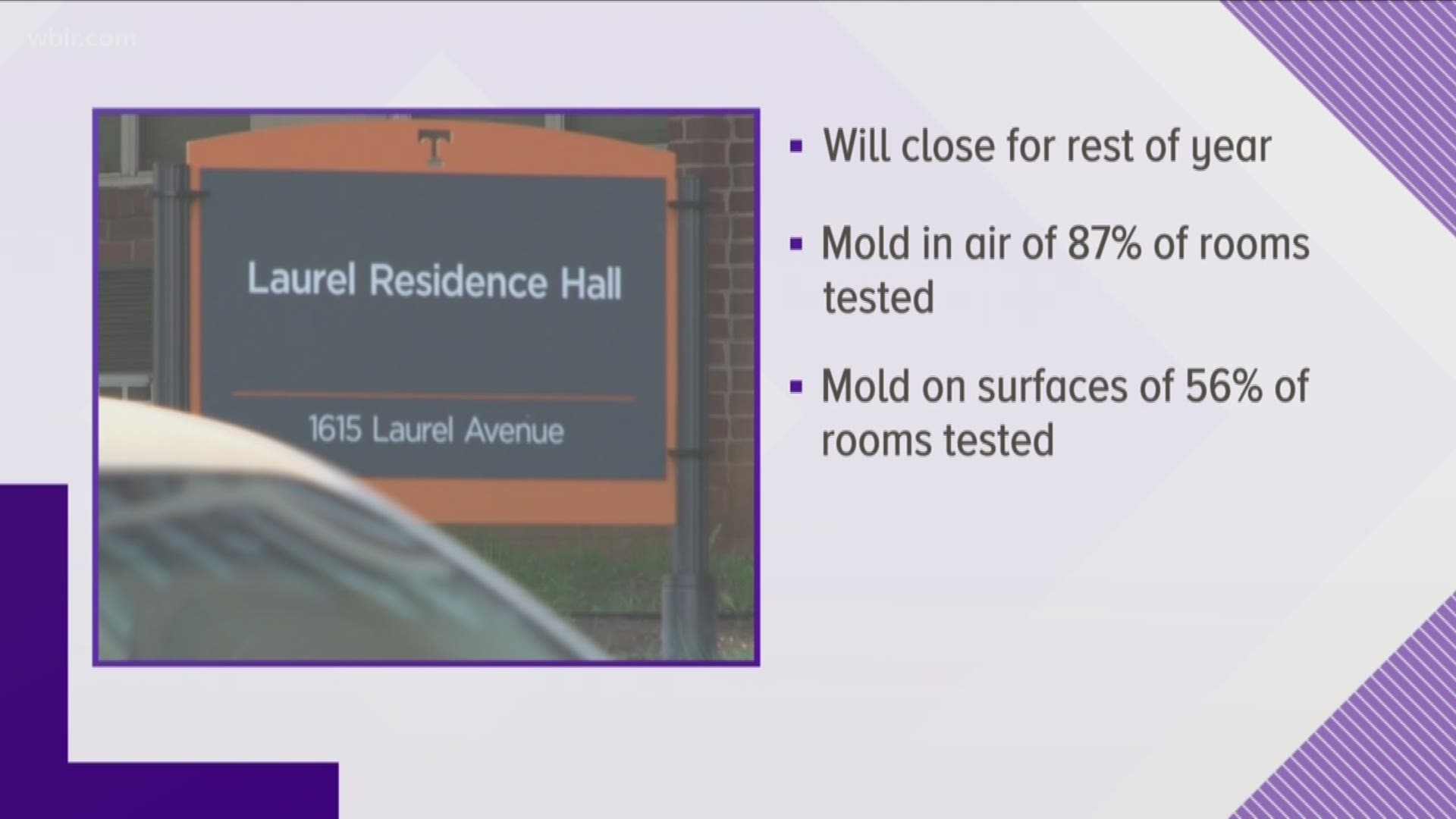Downtown Knoxville — More than 400 UT students have received new housing assignments and many have begun moving out of Laurel Hall after mold found in the building required it to be closed so it could be remediated.
UT contracted with Environmental Air Quality Professionals Inc. and Assured Bio to collect and analyze surface and air samples from rooms in Laurel Hall to determine the scope of mold spores present in building.
EAQP has completed its limited environmental investigation of Laurel Hall and the testing of other residence halls on campus.
Due to the types and amount of fungi present in Laurel Hall, EAQP recommended that all apartments in Laurel Hall should be cleaned and remediated all after the students have been relocated to another area, confirming the initial assessment by University Housing to close the building.
The information obtained through the analysis of samples provides the basis for Laurel Hall’s remediation plan to be performed by Belfor Property Restoration, an independent contractor that specializes in microbial remediation.
Forty-six out of 313 apartments in Laurel Hall were tested.
- 56.5 percent of surface samples collected in the 46 rooms tested positive for mold.
- 87.2 percent of all air samples collected in the 46 rooms showed levels of mold that are elevated when compared to outdoor air samples collected at the same time.
- A microscopic analysis of surface and air samples showed Aspergillus- and Penicillium-like spores. These are round-shaped mold spores of about 2–5 micrometers in size.
According to Assured Bio’s Edward Sobek, a specialist in microbial and chemical issues affecting buildings, there are currently no national guidelines or standards for the acceptable number of mold spores present in indoor air. The industry standard for professionals is to compare samples collected from the interior of a building to the outside control sample.
The people most likely to have reactions to mold exposure are those with pre-existing conditions including asthma and allergic rhinitis, and those undergoing immunosuppressive treatments.
For others that are sensitive to mold, exposure can lead to respiratory symptoms such as stuffy nose, wheezing, coughing, chest congestion, and red or itchy eyes or skin.
Additionally, Sobek noted that mid-August to late September is mold season. This September was the fourth-hottest September on record. High temperatures and humidity levels contribute to the propagation of mold.
Housing staff have been working with several students with health concerns and arranged special accommodations for them as needed.
To determine whether the seasonal conditions were affecting other residence halls, the university began air quality testing in the remaining 11 residence halls and collected 367 samples.
The two types of tests conducted were for Aspergillus and Penicillium—the types found in Laurel that can cause respiratory symptoms—and for Stachybotrys chartarum—often called black mold.
- Testing of other residence halls indicated seven rooms among the 367 tested with elevated levels of Aspergillus and Penicillium when compared to outdoor air samples. Those rooms were in Reese Hall, Hess Hall, North Carrick Hall, Massey Hall, and Clement Hall.
- In four rooms of the 367 tested, Stachybotrys chartarum was detected in the air at a low level. Those rooms were in Brown Hall, North Carrick Hall, and Stokely Hall.
- Of the 367 rooms tested, two rooms in Reese Hall registered elevated levels of the Stachybotrys chartarum spores compared to levels found in outdoor air samples collected at the same time.
- A retest of Reese Hall showed Stachybotrys chartarum was not detectable.
Housing staff are in the process of reinspecting all rooms that showed elevated levels, according to UT officials.
Based on the analysis, the university has no plans to relocate residents in any of these residence halls.
The university says students who have concerns about their rooms should submit an online maintenance request with University Housing.
For more information visit UT's news page.

